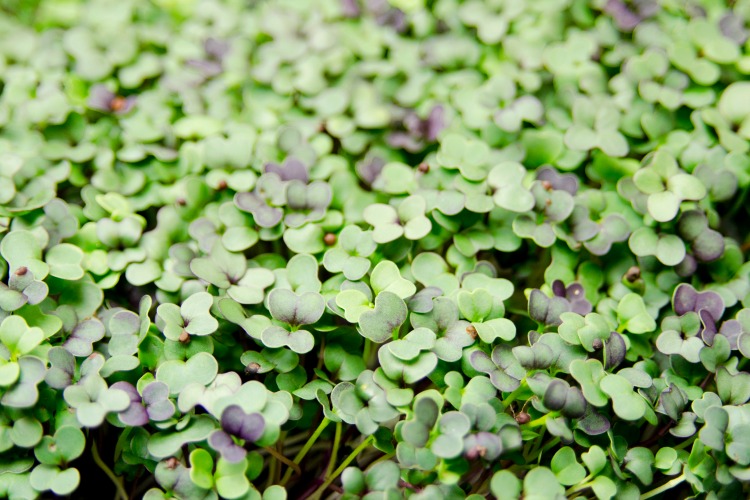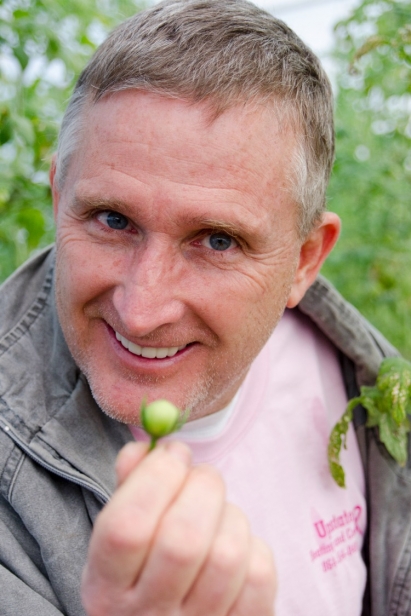Your Hometown Microgreens
Until last year, Scott Horne had never grown vegetables. But under the tutelage of Jesse Adkins of Hurricane Creek Farm, Scott started a small hydroponic operation in Ware Shoals, growing lettuce and tomatoes. As an owner of a heating and air conditioning business, building a climate-controlled greenhouse came naturally to him.
After experimenting with a few different varieties, and trying his hand at grafting, Scott settled on a tomato that consistently yielded perfect medium-size round, red fruits— just the kind people were looking for at the Palmetto Farmers Market in Williamston, where he became a vendor last summer. In the fall, his tomatoes were featured at a dinner for the Anderson County Municipal Association.
Scott christened his business “Your Hometown Farm.” He wanted a name that let people know his products could be trusted, that they weren’t produced by industrial agriculture. His vision was to offer pesticide-free vegetables that weren’t genetically modified and that used less water (85% less), fuel (90% less), and other natural resources than our food system currently requires. His hydroponic operation uses 80% less fertilizer and 70% less land than a traditional farm would.
This year, he’s adding a 13,000 square foot greenhouse to his operation, and decided to start production of microgreens: seedlings of vegetables and herbs that are harvested at less than two weeks old. Scott’s blend of choice is Johnny’s Mild Microgreen mix. Tiny Red Russian kale, mizuna, kohlrabi, and cabbage plants— much more nutrient dense and intensely flavored than their mature counterparts— are harvested when they’re nine days old. The greens are sprinkled on salads, soups or pizzas, or used as a garnish.
Scott’s initial microgreen production area is a repurposed wood kiln from a sawmill operation he closed a few years ago. The block building is heavily insulated on the inside and lined with mylar to reflect the light from his professional-level grow lights. For germination, he maintains a consistent temperature of 72 degrees, with the help of heat mats. (Unlike sprouts, microgreens are grown in flats of soil.)
As we walk back outside and see the skeleton of the new greenhouse that will be finished later this year, Scott smiles widely and sighs. This is a man who has found his passion.
Your Hometown Farm
3576 Poplar Springs Road
Ware Shoals
864-554-0402
Hornehvac@prtcnet.com






